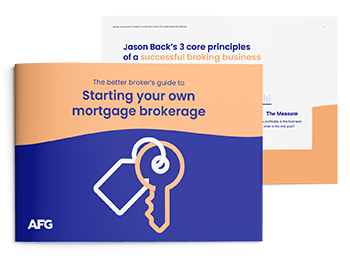AFG is delighted to announce a landmark sponsorship agreement to become Principal Partner of Foyer Foundation, an independent charitable organisation that works with young Australians at-risk of, or experiencing, homelessness. Foyers are integrated learning and accommodation settings that provide young Australians experiencing disadvantage with a pathway to education, training and employment that is founded on access to stable and secure housing.
The Foyer model is an evidence informed, international best practice in helping disadvantaged young people, aged 16-25 years who are homeless or in housing need, to achieve the transition to adult independence.
AFG CEO David Bailey and Foyer Foundation board member Michelle Hoad, Managing Director of North Metropolitan TAFE, launched the national partnership at the largest Foyer in the world, Foyer Oxford in Leederville, Western Australia recently.
AFG CEO David Bailey said: “The social crisis of homelessness is a whole of community problem. AFG is taking the step today to help play our part in addressing that problem.
“As one of the country’s largest networks of mortgage brokers we see firsthand the importance of a place to call home. Foyer Foundation is an organisation that has a globally proven model that works to address the issue among young people, one of the hardest hit parts of our community when faced with homelessness.
“By partnering with Foyer Foundation, we are supporting a program that helps young people into a stable and secure home from which they can find their feet and take their place in the community.
“At AFG we work to support our brokers to build their success. We call it ‘brokering a better future’. By helping Foyer Foundation to wrap the support needed around these young people, we hope to play a part in helping them build a better future also.”
A key component of the funding support will be the creation of the ‘AFG Independence Fund’, a series of grants accessible to Foyer’s young people tailored to contribute to their education, well-being and employment support pathways.
Katie Hooper, Foyer Foundation CEO was unable to join David and Michelle at the launch but said from her hometown of locked-down Melbourne: “This incredible support and funding from AFG including the creation of an Independence Fund will be a game changer for some our young people needing to access extra resources and support to help them achieve their goals, often after a turbulent period in their lives.”
“Approx. 50% of our Foyer residents come from situations of family violence or family breakdown and often they cannot access the resources required to help them stay in study or maintain a stable income, putting them at risk of homelessness.
“The AFG Independence Fund will remove barriers that often challenge our young people when striving for future goals, creating more opportunities for our young people, allowing them a chance to thrive. We can’t wait to get started!”
Foyer Foundation currently has nine established Foyers operating in Western Australia, South Australia, Victoria, New South Wales and Queensland, supporting approximately 500 young people on any given night and have a vision to develop and accredit a further 21 locations across Australia.
“AFG’s commitment of $200,000 this year with an option to extend for a further two years will provide Foyer Foundation with stability of funding to help hundreds of young people across Australia and support their plans to establish a total of 30 accredited Foyers by 2030,” said David.
“AFG is very pleased to become a key supporter of an organisation doing such important work in a way that is proven to have a meaningful impact on the lives of young people,” he concluded.
About Foyer Foundation: The Foyer Foundation manages and works to improve the quality standards of Foyers that operate in Australia. The Foundation does not operate Foyers but are the learning organisation that manages their accreditation and supports their quality improvement. By linking Foyers to a national community of best-practice, it enables Foyers to share learnings and resources, utilise research and data to inform practice, and harness collective expertise to further innovate around the Foyer approach. Working with (would you name BSL, Anglicare etc?)









